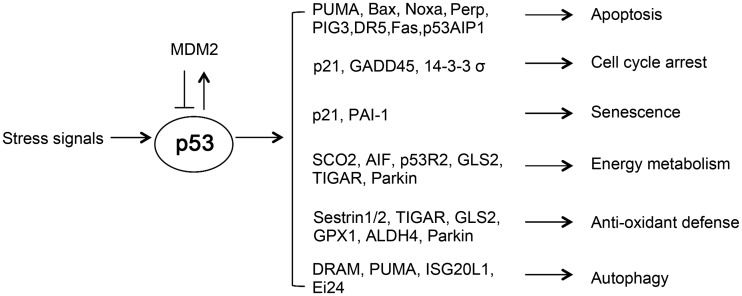Figure 1.
p53 transactivates its target genes to regulate various cellular biological processes for tumor suppression In normal unstressed cells, the p53 protein is maintained at a low level in cells by its negative regulators, such as MDM2. In response to a wide variety of stress signals, activated p53 transcriptionally regulates the expression of its target genes to regulate various cellular biological processes, including apoptosis, cell cycle arrest, senescence, energy metabolism, anti-oxidant defense, and autophagy, to exert its role as a tumor suppressor.

